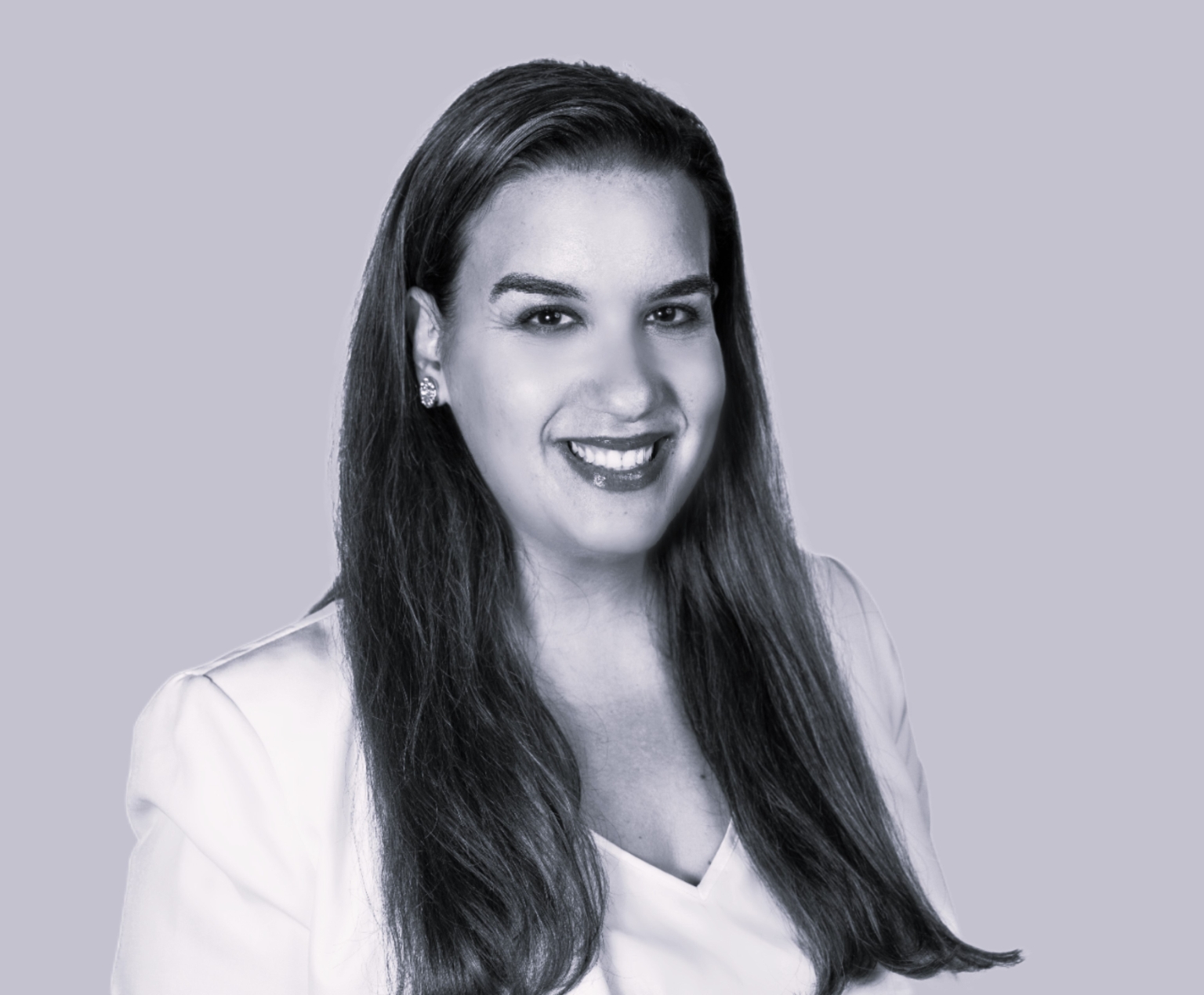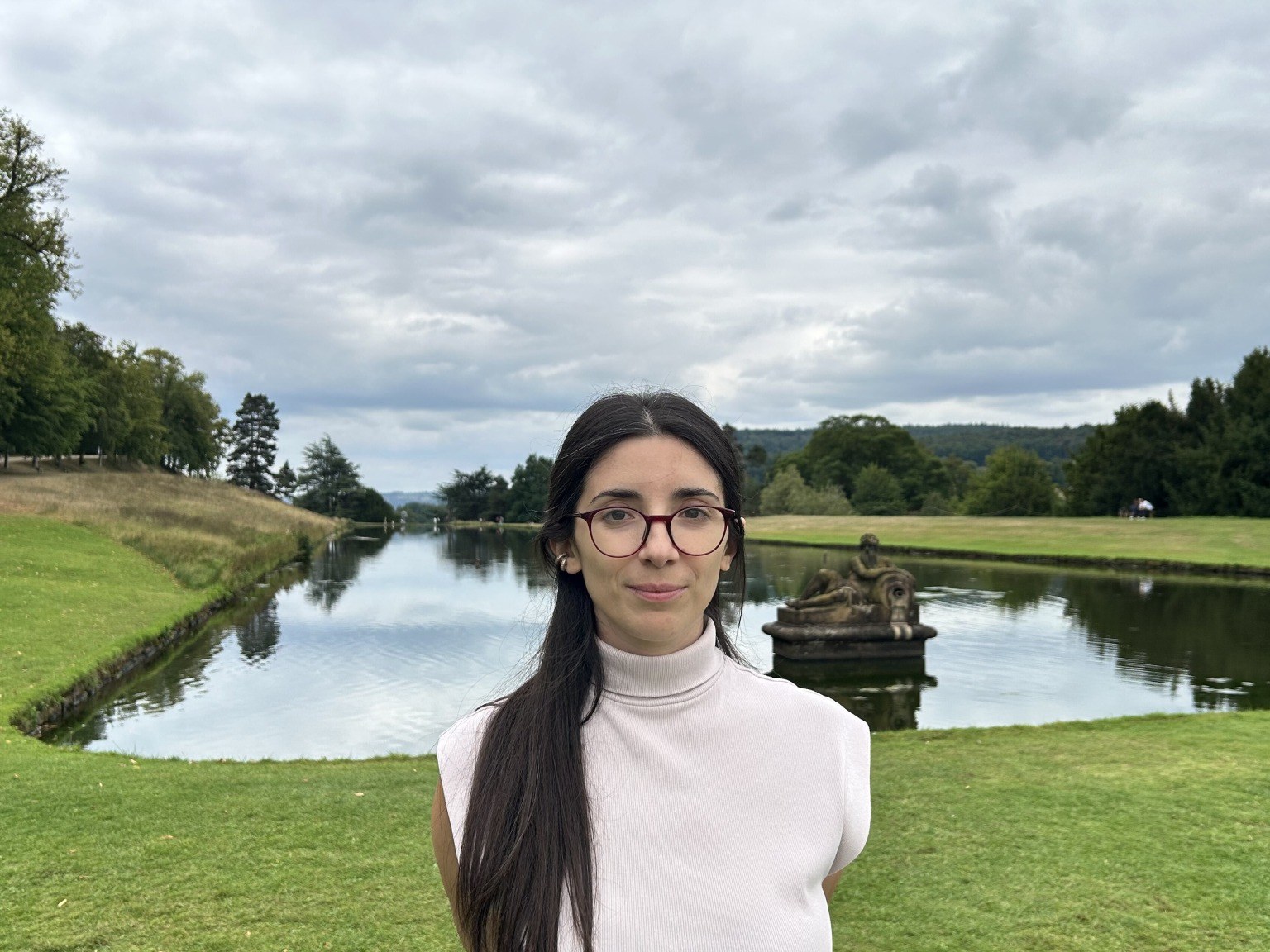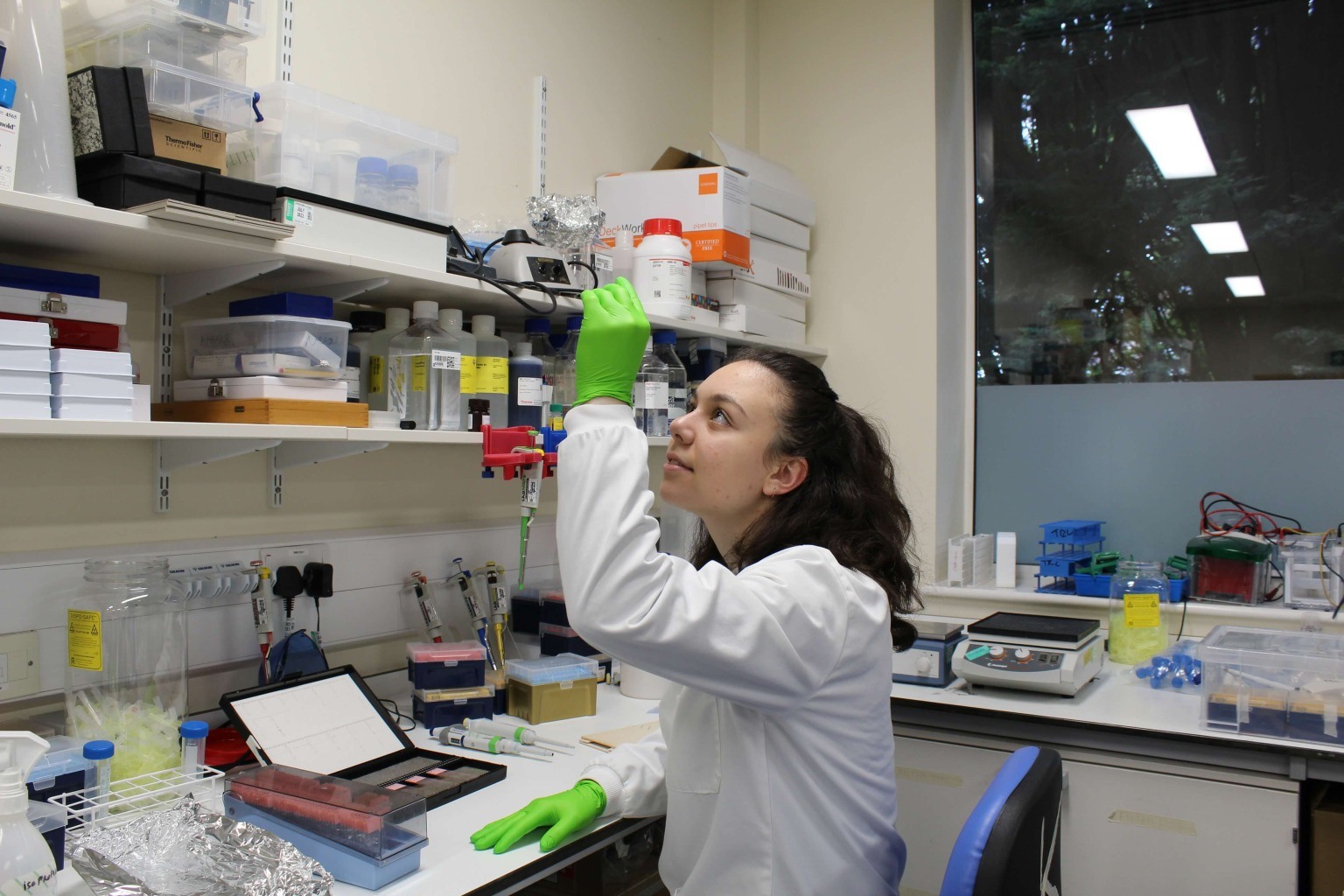
Exploring the invisible: Dr. Ariadni Boziki simulates the molecular world
Chrysovalantou Kalaitzidou
Magazine / Interviews , Science
Dr. Marilena Mela started her academic career at the University of Ioannina, where she received her degree in Applied Biology/Biotechnology. Afterwards, she continued her master’s studies at the University of Crete as well as at the University College London specializing in Molecular Medicine and Human Genetics. She then moved to the USA where she completed her PhD studies in Cancer Biology and Genomics at the University of Southern California. Today, she still lives in the USA and works as Assistant Director of the Molecular Diagnostics at the non-profit academic research institution New York Genome Center. Marilena spoke to Greek Women in STEM about her research and her scientific journey.
Could you briefly describe your main research subject?
As a Clinical Laboratory Geneticist, I specialize in the diagnosis of cancers and other genetic syndromes, prenatal diagnosis and the accurate clinical interpretation of complex results in the field of Clinical Cytogenetics and Molecular Genetics. My research interests broadly include the translation of genomic discoveries into clinical and therapeutic applications in the field of personalized medicine, to provide high-quality and state-of-the-art patient care. My current clinical responsibility primarily involves the interpretation of molecular test results to screen for and diagnose cancers. I work closely with oncologists, pathologists and bioinformaticians to help guide patient-personalized care. This is achieved by understanding inherited and acquired genomic alterations and their implications in the screening, diagnosis, and management of cancer.
How exactly is genetic testing for cancer performed?
Genetic testing for cancer is an essential part of Precision Oncology. Precision Oncology focuses on tailored therapeutic strategies for each cancer patient based on their unique genomic makeup. Paired tumor-normal whole genome and transcriptome sequencing (WGTS) is one of the most advanced Next-Generation Sequencing (NGS) assays. It provides a comprehensive molecular profile of an individual’s tumor and germline cancer predisposition (i.e genetic variants the patient was born with which predispose to cancer). This single test can offer multiple therapeutic options specific to the tumor itself, and at the same time, it enables the identification of germline variants associated with hereditary cancer predisposition. This Clinical interpretation of germline variants associated with cancer, enables clinical management, guidance and counseling for the individual and targeted testing for family members. Genetic testing can also be performed in healthy individuals who have a family history of cancer and wish to know their risk of developing cancer to allow for cancer prevention or early diagnosis/detection.
You currently work as Assistant Director in the department of Molecular Diagnostics at the New York Genome Center. What (duties) does this position entail?
In my current role, I specialize in cancer genome diagnostics focusing on the analysis, evaluation, interpretation, and reporting of clinical molecular test results for Oncology Genome and Transcriptome (RNA Sequencing) sequencing assays. I also participate in Tumor Board meetings which are multidisciplinary seminars consisting of geneticists, genetic counselors, pathologists, oncologists and bioinformaticians. Together we discuss the testing results for each patient and decide on an appropriate treatment strategy. Outside my clinical duties, I train and mentor newly hired team members, and I present our work in conferences.
Winston Churchill said that “Success is going from failure to failure without losing enthusiasm.” Science is a marathon, not a sprint. Rejection is part of the scientific journey. From personal experience, I truly believe that most of the times one rejection might be a blessing in disguise.
In addition to your clinical laboratory duties, you are actively involved in communicating science to the general public. In what ways do you achieve this?
I had the great opportunity to be a TEDx speaker in Columbus Ohio in 2019, where I talked about Personalized Medicine during an event empowering girls in science. I currently serve as a junior member of the Board of Directors of the Cancer Genomics Consortium (CGC), and also volunteer as a Communications Committee member at CGC. Yearly, I participate in the Medical Genetics Awareness Week organized by the American College of Genetics and Genomics (ACMG) where I spread the word about Clinical Laboratory Genetics with my colleagues. During these roles, I focus on science advocacy and communication promoting diversity, equity and inclusion (DEI) within the genomics community. I have also served as a chair in several committees organizing fundraising events for women-led cancer research and I love to participate in career days in schools interacting with students. As Dr. Marie Curie said ‘nothing in life is to be feared, it is only to be understood”. For this purpose, I have launched a YouTube Channel called “Once Upon a Geneticist” where I share my scientific content with the public. Finally, I like mentoring the new generation of aspiring students who wish to pursue my clinical laboratory genomics fellowship.
The road to the top has many obstacles. During your professional career, which was the biggest challenge you faced and how did you manage?
The road to the top and success needs hard work, talent, luck and boldness. I prefer to view the challenges as opportunities for personal development. Moving to Los Angeles, California, USA from Greece by myself 10 years ago without knowing anyone was among the biggest challenges. Pursuing a career in the US was my ultimate dream so, I initially did not feel the “fear of the unknown”. Eventually, I realized that this move was completely out of my comfort zone and I felt proud of myself that I dared it. Initially, I had to face stereotypes and gender bias towards females in science. I overcame these challenges by working harder and proving that I deserve to be there. This was a tough but eye-opening experience which helped me evolve scientifically and also as a personality. I was also fortunate to find support during this journey by mentors, friends and family. I aspire to inspire new scientists advocating and promoting women’s representation in STEM. Lastly, another challenge which I think all scientists face is finding a balance between career and personal life. I feel very fortunate to have found it so far.
Rejection in science requires a “strong stomach.” From your experience, what advice would you give to young hatching scientists to better manage rejection?
Winston Churchill said that “Success is going from failure to failure without losing enthusiasm.” Science is a marathon, not a sprint. Rejection is part of the scientific journey. From personal experience, I truly believe that most of the times one rejection might be a blessing in disguise. To me “strong stomach” means patience, persistence and perseverance. Some days we feel less motivated and it is acceptable since we are only humans. But we have to be disciplined, work hard, and keep moving. My ultimate advice is to choose your mentors wisely! Find inspiring role models. Surround yourself with people who believe in you, support you and remind you why you started this journey. Avoid toxicity and negativity because they could ignite imposter syndrome affecting your self-confidence and productivity. And most importantly, enjoy the ride because happiness brings success!
If you could describe the concept of science in one sentence, what would it be?
“As you set out for Ithaka only hope that your road is a long one, full of adventure, full of discovery”. From Ithaka by C. P. Cavafys
Connect with Dr Mela on LinkedIn or visit her YouTube channel


Chrysovalantou Kalaitzidou

Thaleia-Dimitra Doudali

Danai Korre
